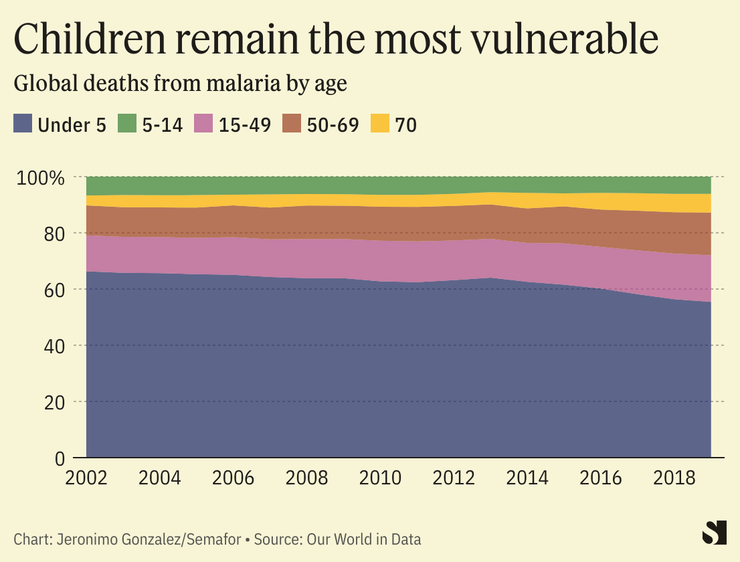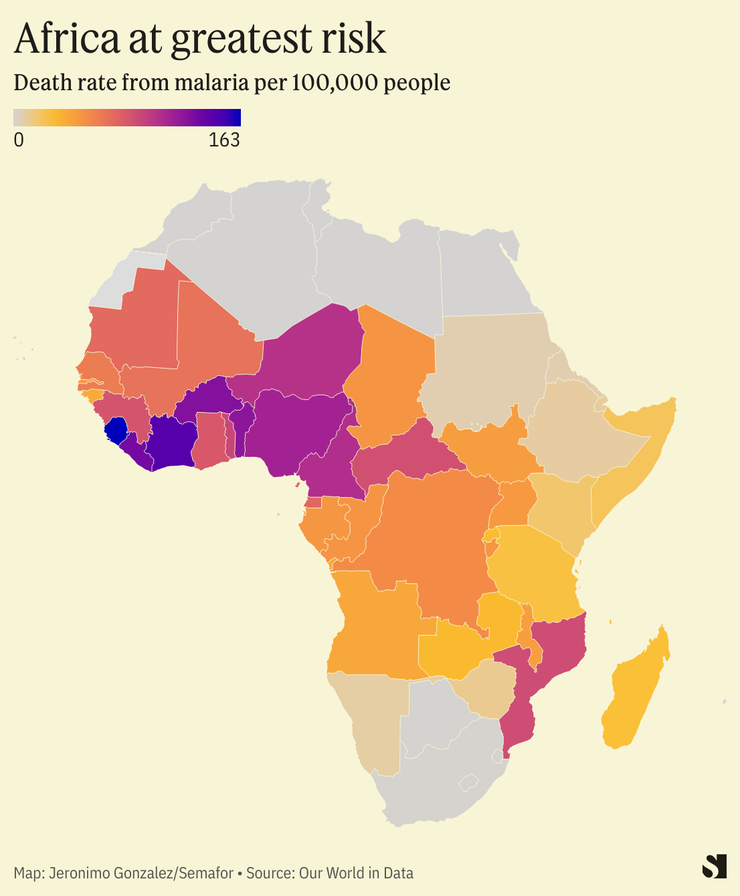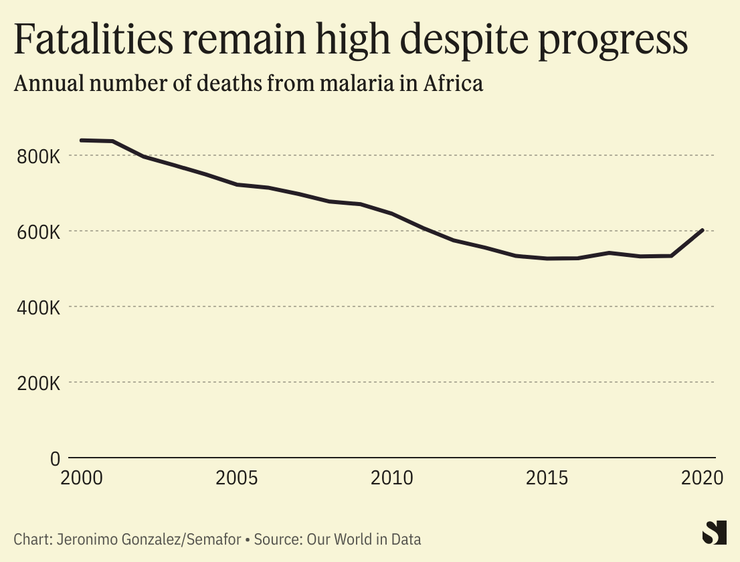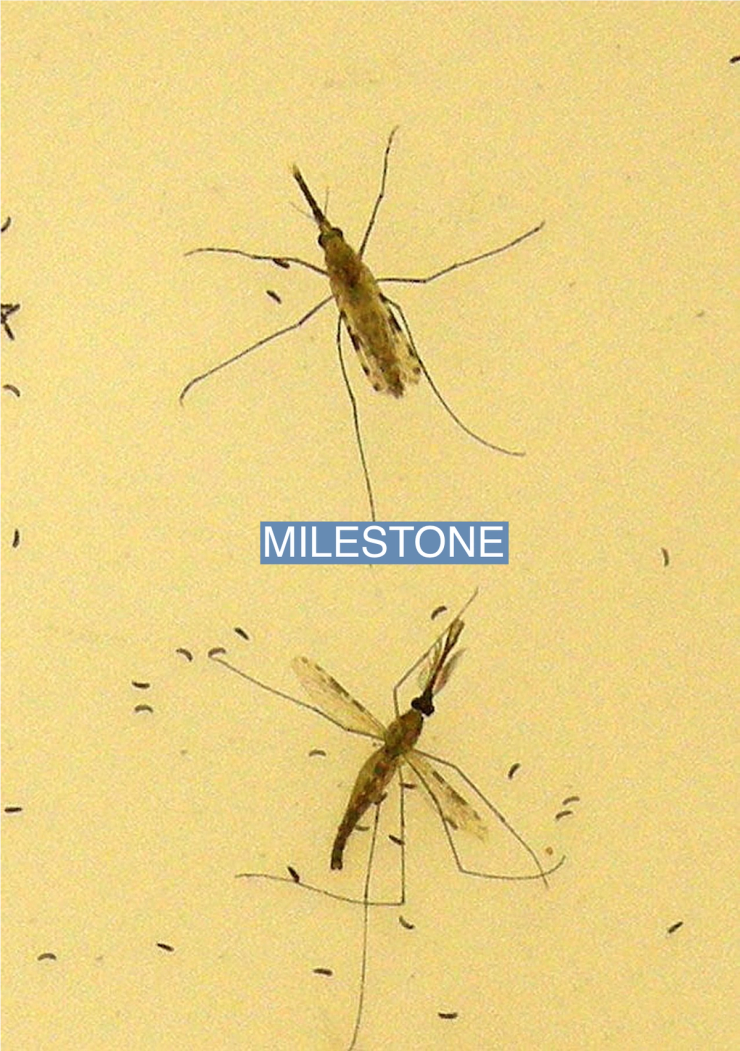The News
Ghana became the first country in the world to approve a new malaria vaccine.
The Oxford University-developed vaccine, called R21, showed 80% protection against the deadly disease in early trials. It requires three initial doses followed by a booster after one year, and is also being considered for approval by the World Health Organization.
Malaria kills more than 600,000 people a year, the vast majority of them children in sub-Saharan Africa.
Here’s a look at the global situation in three charts.
Know More
The death rate from malaria has been declining for children under the age of five for the past several years, but this age group still makes up the lion’s share of the disease’s fatalities. They comprised nearly 80% of all malaria deaths in 2021, according to UNICEF.

Most malaria cases and deaths are reported in sub-Saharan Africa, though the disease is also found in other subequatorial regions, like India. About 96% of malaria cases occur in Africa, WHO data shows, with over half of those in just six countries: Nigeria, the Democratic Republic of Congo, Uganda, Mozambique, Angola, and Burkina Faso.

Overall, malaria case and death rates have been shrinking due to medical interventions. The overall death rate from malaria dropped 40% between 2000 and 2015, according to the WHO. But both the death and incidence rate ticked up in 2020 because of disruptions from the COVID-19 pandemic.


